
Discover more from Do the Work
There is a video that plays in the visitor center of the Flume Gorge in New Hampshire. The video is a historical documentary about Franconia Notch, which is the beautiful mountainous area where the Flume Gorge is. The video starts with a serious and dramatic narrator telling us that Franconia Notch was “four hundred million years in the making.”
Ever since my family sat in the dark room in that visitor center and watched that video before hiking along the gorge, we say, whenever something takes a long time, that it was “four hundred million years in the making,” using the same deep voice and extreme gravitas that the narrator has.1
And so, my friends, I’m here to tell you the story of the making of my next book, Help Wanted: One Rooster. It is a book that was, yes, four hundred million years in the making. Whenever I tell people the vague timeline of this book, that it took ten years from book deal to finished book, they always want to know, like, how does that happen. And while it wasn’t because of glaciers, rivers, granite, and erosion, it was, at times, fairly dramatic. (At other times, it was the usual process of making a book, which is slow and only interesting inside the author’s head.)
Over the next five weeks, until publication day (June 18), I’ll post one essay every Tuesday, detailing the timeline of how this book came to be. Along the way, you’ll hear about how it took me ten years to figure out the ending, what happens when your editor leaves, major technology failures, massive at-the-end rewrites, and…pirates!
I hope you’ll join me. On June 18, I’ll choose a name randomly from subscribers to this newsletter, and that person will receive a free signed copy of Help Wanted: One Rooster.
Our story begins in 2012.
2012 was a pivotal year for me as a writer. In 2011, after decades of casual and unrevised writing that unsurprisingly went nowhere, I finally buckled down and started to write more, read more, and revise more. I participated in 12x12 in 2012, Julie Hedlund’s inaugural year of encouraging writers to write a picture book draft every month. I was part of an online critique group, which was a crash course in writing and revising. I was writing a lot.
It was an exhilarating swirl of constantly hunting for picture book ideas, and writing everything down. I’d write story after story, and some were good, some were bad, some were great. The dream was to have that huge, unquestionably great idea that turns into an undeniably great manuscript. It felt like stalking wild animals. I always had to be ready. They might appear at any time. And when they did appear, I had to know what to do with them.
It was during that time, in August of 2012, that I wrote a first draft of a story about a cow who was searching for a new rooster for the farm. It was inspired, in part, by the Monty Python sketch where John Cleese is interviewing Graham Chapman, and the interview questions (“questions” really) get more and more absurd. I flipped it – the candidates get more and more absurd. And I put it on a farm.2
So I had this cow interviewing rooster candidates, and each one was sillier than the last. But how to end it? Yes. How indeed. I kept revising. I sent it to the critique group in November, saying, “Here's the story I've been working on, HELP WANTED: ONE ROOSTER. I like a lot of it, but plotwise, it stinks. The ending is eh. HELP ME.”
Let us now record ending 1:
The rooster comes back. The cow is relieved. The rooster says “The life of a traveling musician isn’t quite as fun as I thought it would be,” stashes his instruments in a barn stall, and sings in harmony with the other rooster candidates.
Here is part of an email I sent to Sabrina, the incredible and incredibly-organized woman who ran the critique group. I’ve added annotations below.
Napoleon(1) is submittable, as is, I think (or at least almost) Help Wanted: One Rooster, which is the one I just sent in for a critique round
I really want to have three or maybe even four stories(2) ready before I start submitting. I want to get the furniture story(3) ready, as well as Hibernating Hal(4) (I think I just need to print that one out and delete half the words), Ferguson's Monkey(5), Mary Had a Little Clam(6) (which is going through a ton of changes) and two more I haven't submitted to you all yet.
I also have a bunch of stories that I realize will work better as magazine submissions, so I want to polish those and start sending them out.
I'm all fired up!(7)
Julie
Napoleon was a story called Napoleon Blown-Apart, about a dandelion. It wasn’t good. I thought it was.
Three or maybe four stories: The common wisdom was, and still is, I assume, to have at least three picture book manuscripts ready, and submit one, when you’re looking for a picture book agent. The stories should be different enough from each other, to show your range (like, you wouldn’t want there to be three stories that are each essentially about kids learning the value of kindness).
“The furniture story” was a story about weird and unknown furniture, which ended up being No Boring Stories, many years later.
Hibernating Hal was a story about a boy who started hibernating. I tried it as both a picture book and an early reader. It was, and I can’t believe I’m saying this, too weird.
Ferguson’s Monkey was about a family who comes home and there’s a stern monkey in their house who corrects their manners. I was so excited about it, and I’m cringing just writing this. It was very bad.
OH GOSH worst of all is Mary Had a Little Clam. I can’t believe I was even seriously considering it beyond coming up with the title and laughing about it. This is what learning to write is, though: trying everything, seeing what feels right.
Most important, maybe, is “I’m all fired up!” Because look at how much I was writing, just getting revised in November of 2012. It is perhaps critical to note that I wrote Snappsy the Alligator (Did Not Ask to Be in This Book) in December of 2012. So the energy of this email is the energy of someone who is writing a lot, reading a lot, and getting excited about stories. That is the energy that, for me at least, brings in the big inspiration.
Perhaps it is also crucial to note that I didn’t get a smart phone until 2017. This is the energy of someone without a smart phone distracting her.
I submitted Help Wanted: One Rooster to Rate Your Story3 at the end of November. The critique said, in part, “Your concept is FANTASTIC. Hilarious. Well-written! Now: the down-and-dirty. At the beginning, we don’t know that a rooster is being replaced/on vacation. So the ending kind of comes out of nowhere and is hard for kids to predict (they like being in on the joke). Tie it up with a very fun ending (I don’t get WHY on earth the others are all invited back in at the end by cow, who was completely annoyed by them?) that satisfies and makes sense. This WILL be published one day soon.4 Let us know when it does!!!”
I was so excited by this (I still am, truthfully. Praise from strangers is still a thrill). But yes, the ending wasn’t working.
I won a critique in an auction from Tara Lazar, and she said (I bet you can predict it) “I think you need to punch up the ending. The ending has to be a KAPOW since you have so much humor in the story already, the ending really has to be the final GUFFAW. Right now it kind of falls flat.”
I was still “fired up!” in so many ways, but was completely unsure of how to make the ending work. I loved the way the interviews ramped up in absurdity, but couldn’t figure out how to have it all end perfectly and hilariously.
Next: a book deal!
If you like this newsletter, you might enjoy my recent podcast appearance on the Woman Uncaged podcast, where I talk about work and productivity.
Preorder links:5
Print: A Bookstore for signed and/or personalized copies
From your local independent bookstore
It’s worth it to click over to the video just to hear this dramatic intro.
A farm is, truthfully, a slightly basic setting for a picture book. It’s a great place to set your picture book if you’re figuring out how picture books work. Which I was! I wouldn’t do it now unless I had a huge twist already in mind.
At the time, Rate Your Story was free, and I used it frequently when I was getting near the “done” point on a manuscript.
Ha ha ha, ok. Yes, if the definition of “soon” is “in twelve years.” Imagine a standard joke here about how time moves in publishing and all that.
If you’re considering buying a book, preordering really does help. It lets publishers and retailers know that there’s interest in the book. If you aren’t going to buy, consider asking your local library to order it. THANK YOU.
Subscribe to Do the Work
How to get writing done when the distractions of modern life are coming at you fast.

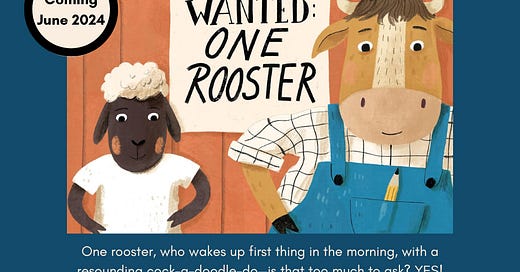






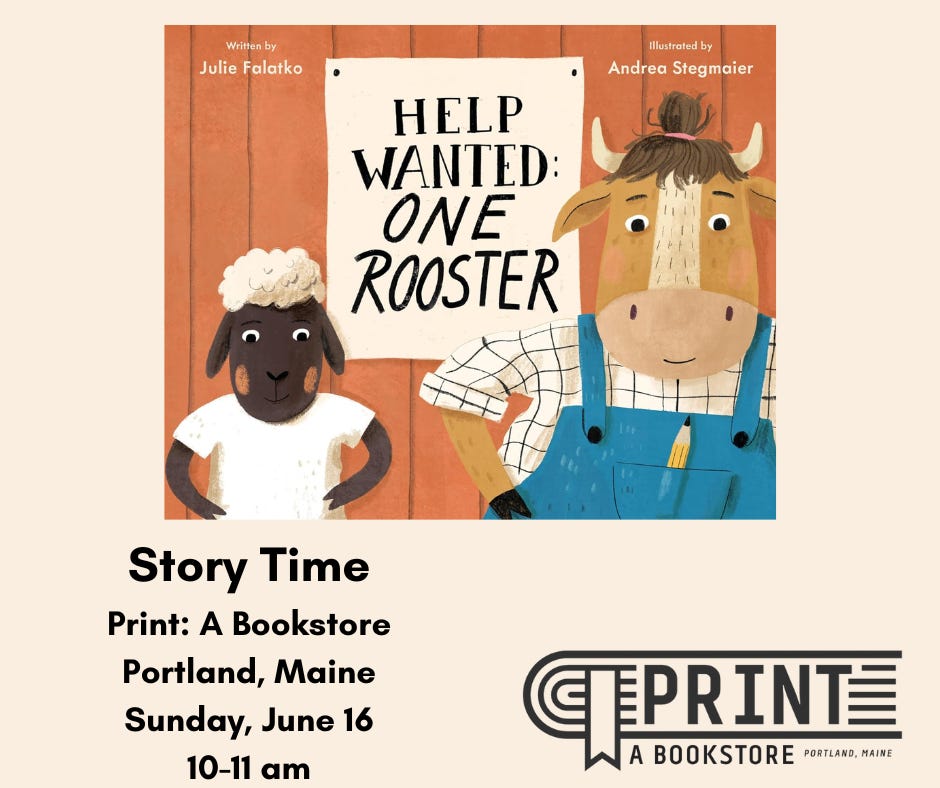





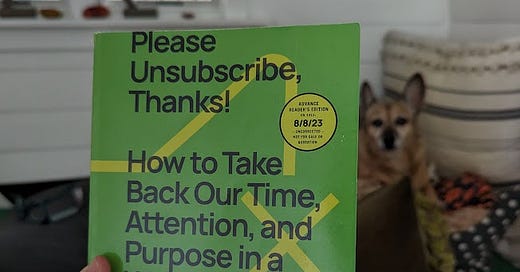

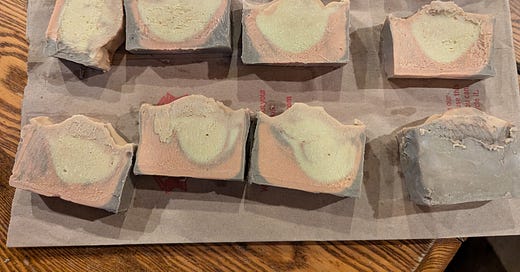

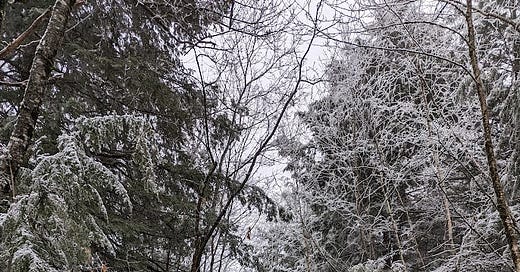

Julie, I read this piece reading a familiar storyline with my upcoming title, A VOICE OF HOPE, in September from idea to sale to publication soon. Dare I say, I started my piece back in June 2005? So glad you followed through and it's finally releasing. Love reading about experiences like yours, which reminds us to remain persistent and stay the course... stories sometimes take a while to simmer into something spectacular! Congratulations!
Um, I *LOVE* Mary Had a Little Clam? Maybe don't shelve that one yet! 🤭 There is a story there, because there is a laugh there, already! I'm totes imagining this being influenced by The Walrus and the Carpenter...